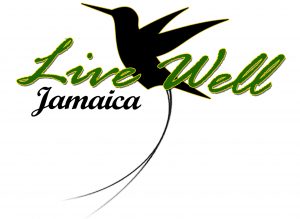Jamaicans are notorious for their adherence to superstition and stereotypes. When these qualities are incorporated with misinformation, it can be a toxic bath of fear and isolation.
The issue of mental health is a topic that is on the rise in the Jamaican society. Though the conversation is still just in its initial phases, it’s important for its sustainability that we focus the conversations in the region it is needed most: Men’s Mental Health.

However, it is time to shed the cloak of ignorance and walk confidently into a new era of informed decision-making as it relates to mental health, especially for young men. Hence, the social media campaign ‘(His)Tory: Normalize Therapy for Young Men’ was born.
The initiative aims to target the stigma of young men between the ages of eighteen (18) and twenty-five (25) seeking therapy as a means to address their traumas and other mental issues to facilitate positive change in their lives. The managers of the campaign, Kriss-Ann Haughton, a recent University of Technology, Ja. graduate; KayAnn Ford, a mental health enthusiast; Sashoi Nichols, mental health workshop & seminar co-ordinator; and Abigail Gordon, an online English tutor, hope to normalize the concept of resolving traumas linked to self-esteem issues in young men through seeking therapy.
Despite the perceived negative image of the practice, there have been men who have been through therapy sessions and have benefitted from those sessions. The campaign managers have been successful in interviewing these young men and sharing their stories.

One such interview was conducted with Andre Thompson, twenty-eight (28) year old accounting clerk who sought therapy after a breakup of a four-year-long relationship.
When asked if attending therapy sessions had helped in the resolution of the feelings that had originally encouraged him to go to therapy, he commented, “Yeah, I’m continuously finding that peace. I won’t say that it’s completely dissolved. What I would say is that how I felt in the initial stages is completely different from where I am now.”
“I would recommend that they find a way to express how they feel, who they are, and not what they do – which are two different things. And just find somebody that they can trust because, in all honesty, that’s the way therapy is,” Andre encouraged.
Another interview, conducted by Nichols, delved into the story of Jhe’Vonte Webster, a third-year University student, who sought therapy to resolve his traumatic experience of being caught in a shoot-out a year ago.
“Well, for the males that I grew up around and whom I can relate to, we were rejected from before we were born. So, society, systemically told us that, you know, you’re down there, that’s where you were born, that’s where you should stay,” Jhe’Vonte shared. However, that is not the legacy he wants to leave behind. Instead, he shared that he hoped to stand above what society might have wanted for him. “Me want the man dem fi look into it and see that there’s nothing wrong with talking and seeking help… ‘cause the only way you can get help, is if you seek help… and we need help as people.”
The enemy of change is fear. The campaign seeks to help young Jamaican men combat the fear brought about by misinformation through informed public service announcements, media releases, social media pages and a targeted public engagement.
Through these avenues, the campaign should be able to advance the conversation of men’s mental health; dissolving the stigmas associated with Jamaican men using therapy to find peace. They expect to see a shift in the way therapy is perceived in Jamaica, starting with the young men who will soon become the movers and shakers of Jamaican society.










